British Army campaign slammed for being ‘politically correct’ as it appeals to different sexualities, ethnicities and faiths
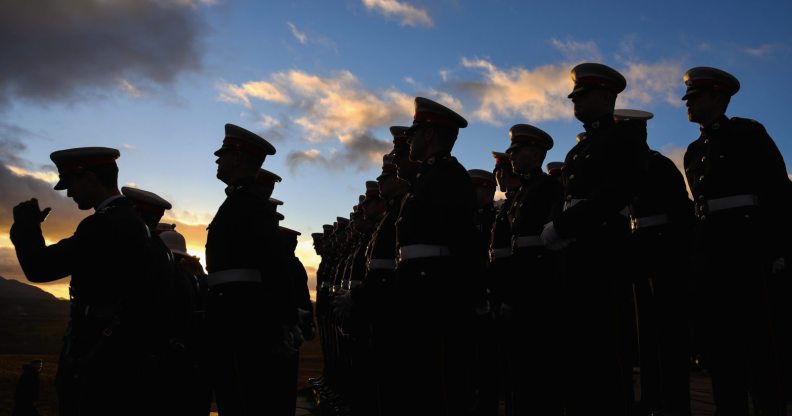
(Photo by Jeff J Mitchell/Getty Images)
A new campaign drive launched by the British Army has been slammed by former top officials for being too “politically correct” because it appeals to different sexualities, ethnicities and faiths.
The advertising campaign heralds a diverse army and promises a supportive workplace through a series of films.
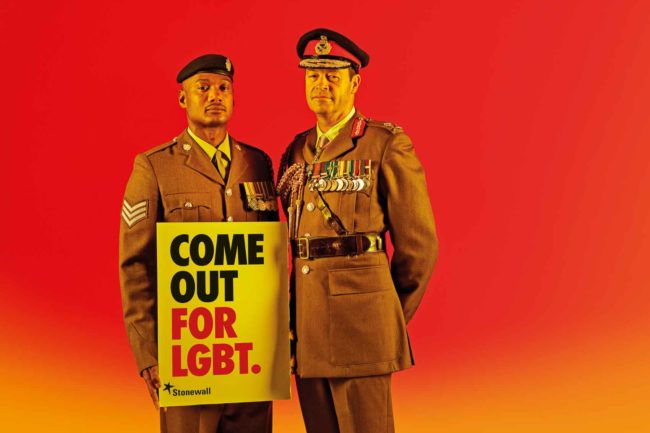
The shorts see potential recruits asking if they can be “gay”, “emotional” and “practice their faith” in the army.
Despite the refreshing attempt to reach out to a more diverse community, top officials have slammed the new campaign for being too “politically correct”.
One former Army commander also claimed that the campaign fails to target those who would be most interested in joining the forces.
The £1.6 million campaign came as General Nick Carter, Chief of General Staff, defended the “This Is Belonging” campaign and said that the army needed to appeal to those other than young, white men.
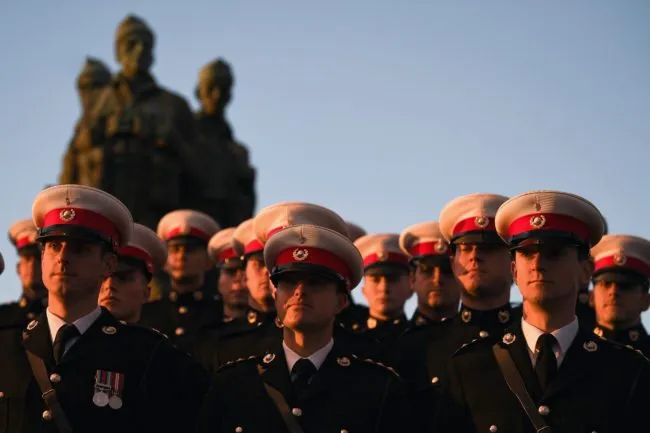
(Photo by Jeff J Mitchell/Getty Images)
He told BBC Radio 4’s Today programme: “Our tradition cohort would have been white, male, Caucasian 16 to 25-year-olds, and there are not as many of those around as there once were.”
“This campaign is a recognition that we don’t have a fully manned army at the moment, that the demography of our country has changed, and that we need to reach out to a broader community in order to man that army with the right talent.
“It is entirely appropriate for us, therefore, to try and reach out to a much broader base to get the talent we need in order to sustain that combat effectiveness.”
Richard Kemp, a now-retired colonel who was a former commander of British operations in Afghanistan, said that the campaign would do the opposite of solving the recruitment problem that the forces are facing.
Speaking to BBC Breakfast, he said: “The army, like the rest of government, is being forced down a route of political correctness.
“What is most important is that the army is full of soldiers. It is of secondary importance that they reflect the composition of society.”
Kemp added that the campaign was “neglecting the main group of people who are interested in joining”.
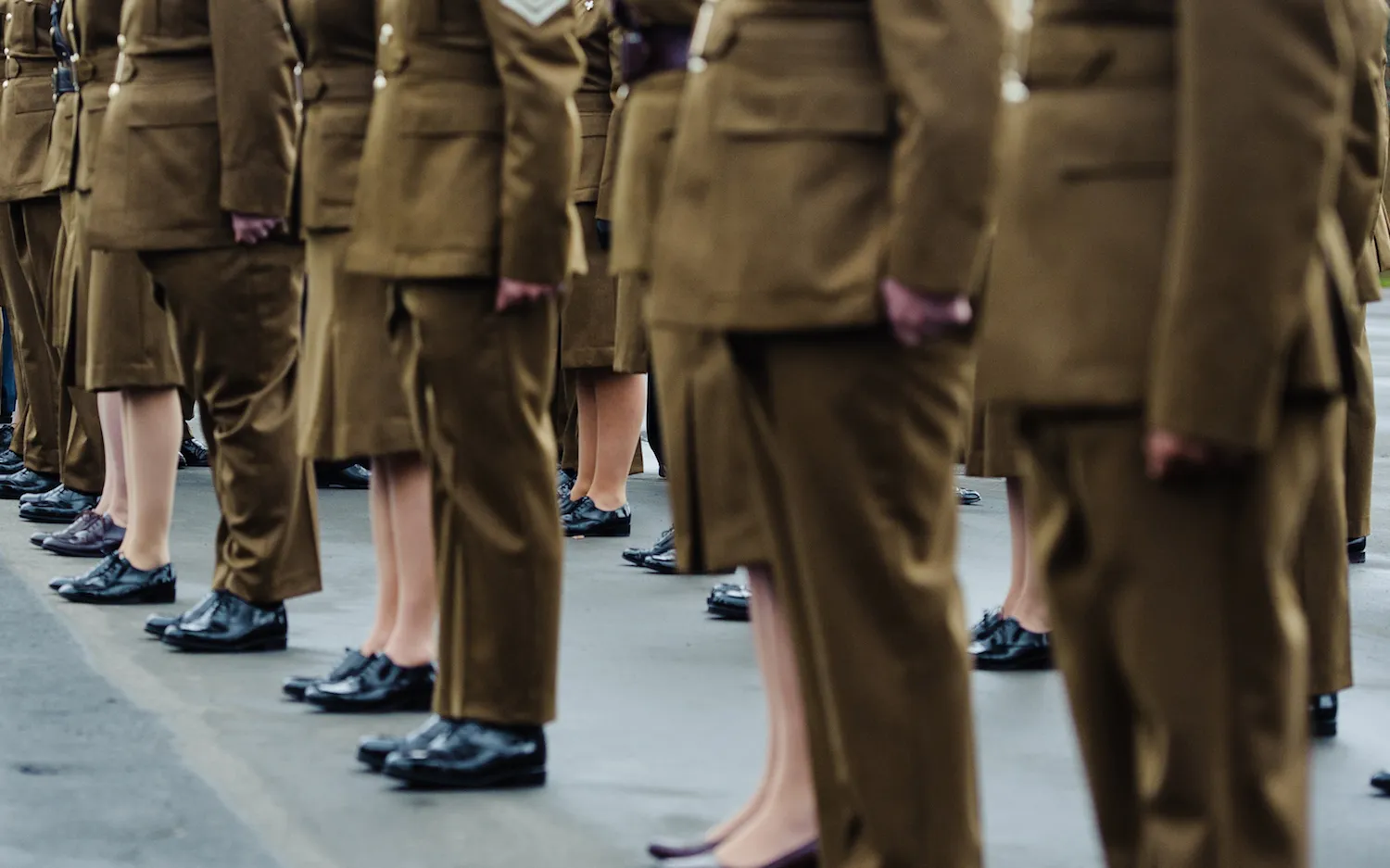
Related: Theresa May’s new Defence Secretary voted to deny rights to gay soldiers
The new campaign comes just weeks after Defence Secretary Gavin Williamson decided to halt plans to scrap the “be the best” slogan the Army had adopted for years.
Plans to get rid of the slogan came after research found that people perceived the slogan to be “dated, elitist and non-inclusive”.
There is growing concern over recruitment to the armed forces as in the year to April 2017, just 12,950 recruits joined the regular armed forces, but 14,970 service personnel left in the same period.
A report commissioned by Downing Street found that The Royal Navy and the RAF were running at around 10 percent short of their annual recruitment target, while the Army shortfall was more than 30 percent.
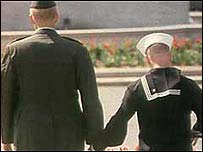
Related: British Army officials confront homophobia in new Stonewall campaign
Some argue that by appealing to a more diverse pool of people it will help to boost numbers.
Major General Tim Cross told the Today programme that he supported recruitment of gay people as well as people from different faiths as long as the army could continue to “duff up the Queen’s enemies”.
He said: “The concern, I think, for a lot of people – and it’s an understandable concern and to some degree I have some concern as well – is that you end up with an Army that’s not capable of doing what you want to do and when you send it away on operations it’s not able to deliver.
“So we must ensure that we reach out to people, we must ensure that everybody knows that they have an opportunity of joining the British armed forces and joining the Army in particular, but we are not going to be soft and we are not going to be nice to people.”
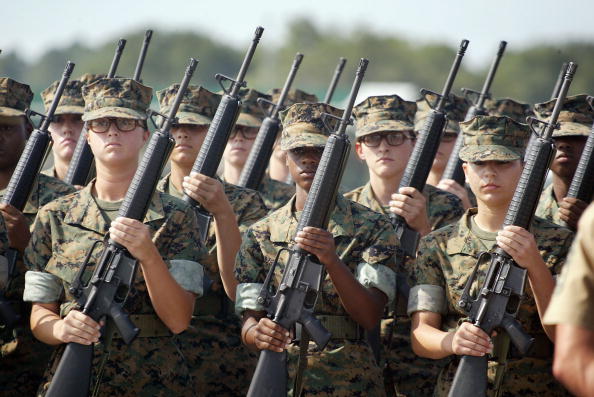
Marine Corps recruits practice drill (Photo by Scott Olson/Getty Images)
The animated adverts put diverse people in the front and centre.
In one, a gay army medic describes wanting to join the army after his brother served in Afghanistan.
“I was really worried about whether I would be accepted,” he says. “I’m not afraid to talk about having a boyfriend. I thought I’d have to hide it, but once you’ve done it you think: why did I have to make it such a big thing for so long?”
In a separate ad, a Muslim soldier explains how the army has allowed him to practice his faith.
Related: Military orders troops to use gender-neutral language
Iain Duncan Smith, a former shadow secretary of State for Defence, said that the adverts were too negative in tone and should be promoting the family structure of the forces.
He told Good Morning Britain: “When you’re under fire the people on your left and right are your family, they protect you, you protect them, their lives matter to you. I would like to see a lot more of it couched in terms like that rather than, ‘Me, personally, can I express myself?’.”

